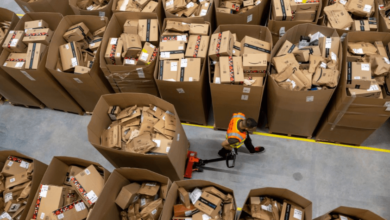Customs China 538.4b

‘Give me liberty or give me death.’
These words, famously uttered by Patrick Henry during the American Revolution, capture the essence of human longing for freedom.
Today, as we delve into the topic of China’s customs regulations and its staggering $538.4 billion economy, we find ourselves examining a landscape that is both complex and dynamic.
By exploring the role of customs in China’s booming economy and understanding the challenges faced by international businesses in navigating this intricate system, we can uncover opportunities for growth and capitalize on China’s vast market potential.
China’s remarkable economic growth over the past few decades has propelled it to become one of the world’s leading economies.
With a GDP of over $14 trillion in 2020, it is evident that China holds immense power in shaping global trade dynamics.
However, behind this impressive growth lies a labyrinthine customs landscape that plays a crucial role in regulating imports and exports.
Understanding China’s customs procedures is essential for any business seeking to enter or expand within this lucrative market.
International businesses operating in China face numerous challenges when it comes to customs regulations.
From language barriers to cultural differences, each hurdle adds complexity to an already intricate system.
Additionally, fluctuating trade policies and protectionist measures further compound these challenges.
Navigating through these obstacles requires not only astute strategic planning but also a comprehensive understanding of Chinese customs procedures, including documentation requirements, tariff classifications, and inspection processes.
In conclusion, as we embark on our journey through the world of ‘customs china 538.4b,’ we must recognize both the significance of customs regulations within China’s booming economy and the hurdles faced by international businesses operating within this complex landscape.
By delving deep into data-driven analysis that encompasses objective viewpoints without personal bias or subjective perspectives, we can gain valuable insights into how to effectively navigate China’s customs procedures while capitalizing on its vast market potential – ultimately empowering businesses with greater freedom in their pursuit of success.
Overview of China’s Booming Economy
China’s economy has experienced rapid growth, with its gross domestic product (GDP) increasing from $2.3 trillion in 2005 to $15.4 trillion in 2020, making it the second largest economy in the world.
This booming economy can be attributed to various factors such as China’s focus on export-oriented manufacturing, a vast consumer market, and significant investments in infrastructure development.
Additionally, China’s customs regulations have played a crucial role in facilitating this economic growth by establishing efficient trade processes and ensuring compliance with international standards.
The country has implemented measures to streamline customs procedures, reduce bureaucratic red tape, and enhance transparency in trade transactions.
These efforts have not only facilitated the smooth flow of goods across borders but also boosted investor confidence and attracted foreign businesses to establish operations within China.
Furthermore, China’s strategic geographical location as a hub for global trade has made it an attractive destination for multinational corporations seeking access to Asian markets.
With its robust customs regulations supporting its booming economy, China continues to play a pivotal role in shaping the global economic landscape.
Importance of Customs Regulations in China
Customs regulations play a crucial role in shaping trade policies in China. By setting rules and standards for imports and exports, these regulations ensure fair competition and protect domestic industries from unfair practices.
Additionally, customs regulations contribute significantly to revenue generation for the Chinese government through the collection of import duties, value-added taxes, and other fees. In 2019 alone, China’s customs administration collected over 538.4 billion dollars in revenue, highlighting the significant financial impact of these regulations on the country’s economy.
Impact on Trade Policies
The significant increase in China’s customs revenue of 538.4 billion dollars has inevitably influenced the formulation and implementation of trade policies on a global scale.
This surge in customs revenue highlights the growing importance of China as a major player in international trade. As one of the world’s largest economies, any changes in China’s trade policies have far-reaching consequences for global supply chains and trade barriers.
The immense revenue generated by customs reflects the increasing volume of imports and exports passing through Chinese ports, making it imperative for countries to adapt their own trade policies to accommodate this trend.
Moreover, with such substantial customs revenue, China has been able to invest heavily in infrastructure development, further enhancing its position as a key player in global trade.
These developments not only impact traditional trading partners but also shape the dynamics within regional economic blocs and influence negotiations on bilateral or multilateral free trade agreements.
Therefore, understanding the implications of China’s customs regulations is crucial for both policymakers and businesses seeking to navigate the complexities of international trade.
Revenue Generation
One key factor to consider in the analysis of revenue generation is the significant impact it has on global trade policies and infrastructure development. Revenue generation through customs regulations plays a crucial role in shaping trade policies as it provides governments with funds to invest in infrastructure projects that facilitate international trade.
Firstly, customs revenues enable countries to implement measures that promote fair trade practices and protect domestic industries from unfair competition. This includes imposing tariffs and quotas on imported goods to regulate their inflow and support domestic production.
Secondly, revenue generated from customs can be used to develop and maintain ports, highways, railways, and other transportation networks essential for efficient trade flows. These investments not only enhance connectivity but also attract foreign direct investment by creating a favorable business environment.
Lastly, revenue generation enables governments to strengthen their capacity for enforcing customs regulations and combating illicit trade activities such as smuggling and counterfeiting. By investing in modern technology, training personnel, and improving border control facilities, countries can ensure compliance with international standards while safeguarding national security interests.
Overall, revenue generation through customs regulations plays a pivotal role in shaping global trade policies while promoting economic growth and facilitating the movement of goods across borders.
Navigating China’s Customs Landscape
Navigating China’s complex customs landscape requires a keen understanding of the intricate regulations and procedures in place.
With its vast market potential, China has become an attractive destination for businesses seeking to expand their operations.
However, the customs procedures can be challenging to navigate without proper knowledge and preparation. Strict regulations and documentation requirements must be followed to ensure smooth entry of goods into the country.
Additionally, staying updated on any changes or updates to customs policies is crucial to avoid delays and penalties.
Analyzing data on import/export trends can also provide valuable insights into market potential and opportunities for growth.
By utilizing a data-driven approach and adhering to the established customs procedures, businesses can effectively navigate China’s customs landscape and maximize their chances of success in this lucrative market.
Challenges for International Businesses
Successfully expanding operations into a foreign market presents various challenges for international businesses. When it comes to China, the customs landscape can be particularly daunting. The sheer size and complexity of the Chinese market, coupled with its unique cultural and regulatory environment, pose significant obstacles for companies looking to establish a presence in the country.
One of the major challenges is navigating China’s customs procedures and regulations, which can be time-consuming and bureaucratic. International businesses often struggle with understanding and complying with import/export requirements, as well as dealing with complex documentation processes. Moreover, China’s constantly evolving trade policies and regulations add another layer of complexity for businesses trying to stay compliant.
Another challenge is the high level of competition in the Chinese market. With a population of over 1.4 billion people, China offers immense opportunities but also intense competition from both domestic and international players. International businesses need to understand the local market dynamics, consumer preferences, and competitive landscape in order to differentiate themselves and effectively penetrate the market.
Additionally, intellectual property protection remains a significant concern for international businesses operating in China. Despite improvements in recent years, issues such as counterfeiting and infringement still persist, making it crucial for companies to implement robust IP protection strategies to safeguard their innovations and brands.
Overall, expanding into China poses unique challenges for international businesses that require careful planning, adaptability, and an understanding of the local business environment.
Understanding China’s Customs Procedures
Understanding the intricate procedures of China’s cross-border commerce can be a demanding and detailed task for international businesses.
China’s import regulations are complex and constantly evolving, requiring businesses to stay updated on the latest changes.
Export documentation is crucial when dealing with Chinese customs, as any errors or omissions can lead to delays or even rejection of shipments.
To navigate these procedures successfully, businesses need to have a thorough understanding of the required documentation, such as commercial invoices, packing lists, and certificates of origin.
It is also essential to comply with China’s import regulations, which include product-specific standards and certifications.
Moreover, businesses must be aware of any restrictions or prohibitions on certain goods entering China.
By staying informed and ensuring compliance with all customs requirements, international businesses can minimize risks and maximize their success in the Chinese market.
Capitalizing on China’s Market Potential
Capitalizing on the vast market potential in China requires a strategic approach that leverages the country’s economic growth, consumer demand, and emerging industries.
Market entry into China can be challenging due to cultural barriers and complex customs procedures. However, with a thorough understanding of the Chinese market and its consumers, businesses can navigate these obstacles and tap into the enormous opportunities available.
China’s economy has experienced significant growth over the years, making it an attractive destination for foreign companies looking to expand their global reach. The increasing purchasing power of Chinese consumers has led to a surge in demand for various products and services. Moreover, China’s rapidly growing industries such as technology, e-commerce, and renewable energy present lucrative prospects for businesses willing to invest in these sectors.
To capitalize on this potential, companies must adapt their strategies to align with local preferences and cultural norms. Understanding the nuances of Chinese consumer behavior is crucial for successful market entry. By conducting extensive market research and employing data-driven insights, businesses can tailor their products or services to meet the specific needs and preferences of Chinese customers.
Additionally, building strong relationships with local partners can help overcome cultural barriers and establish trust among consumers.
Overall, capitalizing on China’s market potential requires a well-informed approach that takes into account both economic factors and cultural considerations.
Frequently Asked Questions
What are the specific import duties and taxes imposed on goods entering China?
Import duty rates in China vary depending on the type of goods. Generally, they range from 0% to 50%. Certain products may be eligible for tax exemptions or reductions under specific trade agreements or government policies.
How can international businesses ensure compliance with China’s customs regulations?
International businesses can ensure compliance with China’s customs regulations by addressing the compliance challenges and implementing market potential strategies. This ensures smooth operations in a complex regulatory environment, resembling a tightrope walk for business freedom seekers.
What are the common challenges faced by international businesses when dealing with China’s customs procedures?
Challenges faced by international businesses when dealing with China’s customs procedures include complex regulations, bureaucratic processes, language barriers, and inconsistent enforcement. These challenges can hinder trade and require a deep understanding of the regulatory landscape to ensure compliance.
Are there any specific trade agreements or partnerships that make importing goods into China easier?
One specific trade agreement that makes importing goods into China easier is the ASEAN-China Free Trade Agreement. This agreement eliminates or reduces import duties for certain products, facilitating trade between ASEAN countries and China.
What strategies can businesses implement to capitalize on China’s market potential while navigating the customs landscape?
To capitalize on China’s market potential while navigating the customs landscape, businesses can implement strategies such as conducting thorough market research, building strong relationships with local partners, adapting to cultural nuances, and complying with import regulations.
Conclusion
In conclusion, the customs regulations in China play a crucial role in supporting its booming economy.
The country’s market potential is immense, with imports reaching a staggering $538.4 billion.
Navigating the customs landscape in China can be challenging for international businesses due to the complex procedures and strict regulations.
Understanding China’s customs procedures is vital for businesses looking to capitalize on this market potential.
Compliance with these procedures is necessary to avoid delays and penalties that could hinder business operations.
Furthermore, it is essential for companies to stay updated on any changes or updates made to China’s customs regulations, as they can directly impact trade activities.
Metaphorically speaking, navigating through China’s customs landscape can be likened to sailing through uncharted waters.
International businesses must carefully chart their course, taking into account the ever-changing tides of regulations and procedures.
Just as skilled sailors use navigational tools to guide them safely through turbulent seas, companies must equip themselves with knowledge and expertise in order to successfully navigate China’s complex Customs landscape.
By adhering to the rules and understanding the intricacies of China’s customs system, international businesses have the opportunity to tap into vast market potential and benefit from its booming economy.
However, without proper preparation and compliance, they risk being swept away by waves of challenges and setbacks that may arise along their journey.
Therefore, it is imperative for businesses seeking success in China to invest time and resources into understanding and complying with Chinese customs regulations, as well as building strong relationships with local partners and stakeholders.
By doing so, businesses can navigate the complex regulatory landscape and ensure that their operations are in line with the expectations of Chinese authorities.
This not only helps to avoid potential legal issues and penalties but also enables businesses to gain the trust and support of Chinese consumers, which is essential for long-term success in the Chinese market.




